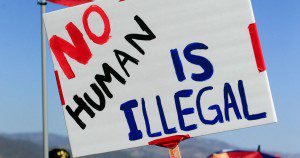In a previous blog (Dialogue, Politics, and the Muslim World) I pointed out that the kinds of societies that will arise in the Muslim world will be determined by the Muslim “social imaginary.” They will depend on who Muslims imagine themselves to be personally, in relation to other people (both Muslim and non-Muslim), and in relation to God. I also suggested that the majority of Muslims in the Middle East appear to have a different social imaginary than that which gave birth to democratic states in Europe and the US.
Now events in Turkey and Egypt have revealed that the Muslim world is a good deal more diverse in its social imaginary than it has appeared based on the election of Islamist parties.
It is true that both the Muslim Brotherhood in Egypt and the the Justice and Development Party in Turkey faced not only their own political incompetence, but also powerful residual state institutions that opposed them. Their problems are not entirely of their making. But the millions of protesters who took to the streets in both countries show that a new social imaginary is rapidly emerging in these countries. And it may indicate that Islamism as a political force faces inevitable decline.
What makes these protests different is that they are not part of the previous politics of the street where rival political movements call their followers out in a show of force to represent the movement’s interests. Instead they represent a more generalized public refusal to accept the autocracy and paternalism that are the core of the Islamist political imagination. The protesters in Egypt don’t represent the military, although they hoped it would intervene. The protesters in Istanbul didn’t represent rival corporate interests to those who would profit from Edogen’s development policies.
Instead they represent the assertion that democracy is not merely the public ratification of the right of a particular person or party to rule on God’s behalf (which is the way classical Islam understood the public role in government, and remains the model of the Islamists.) They are asserting that they, the people, possess the right to rule. Government doesn’t govern in God’s name with their assent. It governs in their name with their assent, and represents neither its own interests nor those it purports God to have, but theirs.
If I am right then what is happening on the street in Egypt and Turkey is the real beginning of democracy in the Muslim world. Because it reaches beneath democratic forms to a truly democratic social imagination. At the same time anyone with an interest in democracy should be cautious. Only part of the democratic imagination involves “people’s power.” The other part imagines that all people possess it equally. And as I will take up in my next blog, that seems to be beyond the imagination of most Muslims, and indeed many Jews and Christians as well.











